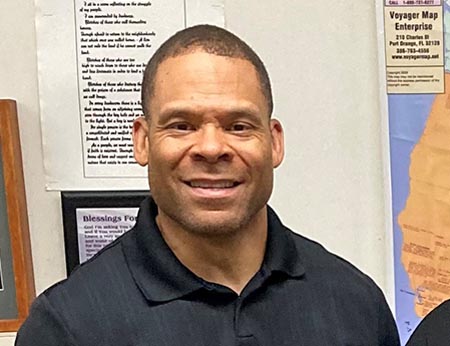Encore Entrepreneurship – Part 1

By Maceo Keeling
Most successful business owners didn’t become successful because they had passion alone. Hard work is not enough, though it does help immensely.
Business Guru Michael Gerber writes about the “Entrepreneurial Myth” that people start businesses because they are risk-takers who risk capital (money) to make a profit (more money than they put in).
In these economically challenging times, more individuals are unemployed and being forced out of their careers by younger, less expensive, talented workers. One result is the emergence of the Encore Entrepreneur.
In 2013, according to the Bureau of Labor Statistics, encore entrepreneurs initiated 40% of all start-up businesses. This phenomenon seems in direct correlation with the displaced workers who have abandoned any hope of returning to the conventional workplace.
These new “older” entrepreneurs are believed to be a better risk by investors and lending institutions because they have demonstrated a work ethic and discipline to stay the course in their area of concentration. They have graduated from the “college of life.”
Tips for Encore Entrepreneurs
• Think about how you want to grow and develop a high-level growth strategy fairly early on (even if it changes as time progresses).
• Proactively set up a special fund intended to support yourself during the business startup phase. Be conscious of what you put into this fund, as you may want to strive for an amount that can fully support you for a year or two to relieve pressure as you ramp up.
• Find three to five completely objective people (not friends or family) and specifically ask them to play devil’s advocate to you to help identify vulnerabilities and then take steps to mitigate those. These can be a formal Board of Directors, a steering committee, or a consultant like Asheville Business Accelerator or Fox Management Group. There are also low-cost or free resources like the SBTDC at your community college or SCORE counselors to America’s small business.
• Consider SCORE or a small-business development center to evaluate the business model and offer expert advice. Their perspective could help you define a strategy that improves your approach to the business compared to what you’ve already established.
• The key is to determine when and where you need help. A good rule of thumb is if an activity is not part of your core competency, you have little expertise in the area, or it’s too time-consuming, consider outsourcing—if you can do so at a reasonable cost.
• Do your homework. Check the websites of your competitors for pricing and services. It’s much smarter to offer value pricing initially, prove your value, and then raise prices over time.
For more information on Encore Entrepreneurship contact Asheville Business Accelerators at (828) 575-9099. Visit www.aafaba.com for future seminar or workshop information.








